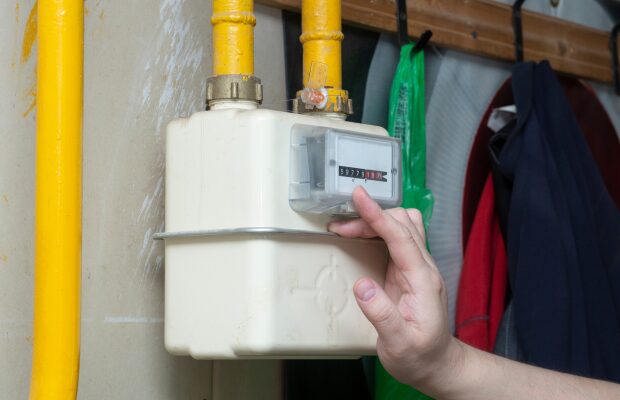This is the second of a series of two blog posts, which detail our ten-step checklist for new Landlords.
It has been designed for first time Landlords but can also be used as a useful reminder for even the most experienced Landlords.
The first article, Checklist For New Landlords: Part 1 covers items such as consent to let, insurance and health and safety requirements, all related to aspects of letting your property before you have secured your tenants.
But once tenants are chosen, what should you remember to ensure are carried out? This article will detail five important things you need to do to protect yourself, your property and maximise your rental income.
1. Conduct an Inventory
This is a very important document; you should conduct an inventory at the start and end of a tenancy. Make a list of all items in the property and the current conditions. The inventory should include items such as the walls; carpets, fixtures and fittings- remember you can use photos to support the inventory. This document will need to be signed and dated by both the new tenants and you as the Landlord.
You should also make sure your tenants knows where to find the important things, burglar alarm codes, stopcocks, meters, boiler and heating controls. It might be worth preparing and leaving behind a guide. This can feel like a bit of a hassle but it is important because if there was a leak, and tenant knows where the stopcock is, they will be able to turn the water off quickly, to stop more potential damage happening. Ellis and Co offer an inventory as part of our Property Management Services. Please contact your local Ellis and Co office for information.
2. Inform All Utility’s Including The Council
Applicable once the tenancy agreement has been signed, but important none the less, you should inform all utilities and the council. You will need to pass on the names of the new tenants, and the date on which the tenancy agreement began. This will help to avoid disagreements over any outstanding bills, at either end of the tenancy.
3. Organisation
It is important that you keep on top of the inevitable paperwork that comes with being a Landlord. We recommend you keep a file of information relating to your property and tenants. Use a computerised accounting system to manage your finances. Act fast when it comes to tackling missed payments or problems with neighbours and record anything serious in writing. Remember that you need to give your tenants 24 hours’ notice if you want to enter the property.
4. Marketing and Viewings
The key to letting your property quickly is to ensure it gets maximum exposure to the right people. You will need to think about the kind of tenant you want to attract, and where best to find them. At Ellis and Co, we are on the high street and online and we have thousands of properties currently marketed through the UK’s major property portals as well as our own.
5. Tenancy Agreements
Once you have found a tenant that you are happy with, you will need agree and sign the tenancy agreement. The tenancy agreement is the most important document at your disposal. You should make sure that your tenancy agreement is properly drafted and that it relates specifically to your property. This is where you get to include any clauses, terms or restrictions, so if you don’t want pets and smokers this is where you need to make that clear. It should name each of the tenants individually. The agreement should be signed and dated by you, and by each of the tenants. Ellis and Co can draw up legal tenancy agreements as part of our Property Management services.
6. Deposits
Getting a deposit is a good way of protecting against any damage and since April 2007, all Landlords are legally obliged to protect the deposit in a government-supported deposit protection scheme, and to provide the tenant with details of the scheme being used within 14 days. The schemes gives both the Landlord and the tenant peace of mind that the deposit monies have been lodged in safe hands. All Ellis and Co local offices hold deposits under one of the three Tenancy Deposit Schemes.
There are a number of additional things to remember, which Ellis and Co can assist with if required. To find out how, contact your local Ellis and Co office.
- You may require a range of references from prospective tenants. At the very least, most Landlords request employment details. In addition you may wish to take details of their previous Landlord. Having received these references, it is important to check them. Many Landlords do not follow up references – rendering them virtually pointless.
- Depending on the nature of the tenant, you may also wish for them to provide a guarantor. In this case, you should ensure that you have their name, their current address, and their previous address if they have moved in the past year. This information will be required if you wish to run credit checks.
- Some Landlords choose to request bank statements from prospective tenants, in order to ensure that they are in a position to pay the rent. This can be particularly useful if the individual is self-employed, or not in regular employment.
- You may want to arrange a formal credit check with your applicant’s employer and any previous Landlord.
This checklist is only a guide, as all rental properties requirements are different. As a Landlord, there is always something to be dealt with and it can quickly become a struggle to keep up with it all, especially if you are working full time or have other commitments. In which case, we advise you consider using a Letting Agent, however we also understand it is not always viable to do so.
Ellis and Co offer a comprehensive range of services to Landlords, from a tenant find only service, rent receipt and a full managed property service – leaving you safe in the knowledge that everything will be dealt with correctly and efficiently, and with more time for the fun things in life.
If you would like to discuss any items mentioned in this two part series, please contact your local branch.








